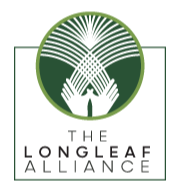Landscape Partnership Resources Library
State Stream Temperature Compilation
PPT slides provided by Jana Stewart. "Water Temperature Monitoring Efforts by Individual Agencies"
NorEaST - intro presentation
Intro PPT presentation (includes introduction to meeting (purpose, objectives, flow) and intro to NorEaST
NorEaST - draft agenda
Meeting Objectives: • Provide overview of stream temperature monitoring protocols and data management • Introduce and demonstrate the NorEaST Stream Temperature Web Portal • Conduct User testing of the NorEaST Web Portal and gain feedback • Demonstrate ways to automate data analysis and quality assurance of data • Demonstrate and discuss applications of continuous stream temperature data • Discuss leveraging NorEaST web portal with other efforts • Discuss moving NorEaST into the future (development needs, funding mechanisms/models, other site types, expanded geography, etc.)
NorEaST - invitation
NorEaST – Stream Temperature Web Portal Demonstration and User Testing. USGS Wisconsin Water Science Center, Middleton, WI, December 9th-10th, 2014.
Stream Temperature Modeler Questionnaire (draft)
Prepared by Jana Stewart for review and discussion: planning call Feb 12th
NorEaST - agenda
Meeting Objectives: • Provide overview of stream temperature monitoring protocols and data management • Introduce and demonstrate the NorEaST Stream Temperature Web Portal • Conduct User testing of the NorEaST Web Portal and gain feedback • Demonstrate ways to automate data analysis and quality assurance of data • Demonstrate and discuss applications of continuous stream temperature data • Discuss leveraging NorEaST web portal with other efforts • Discuss moving NorEaST into the future (development needs, funding mechanisms/models, other site types, expanded geography, etc.)
NorEaST - invitation
NorEaST – Stream Temperature Web Portal Demonstration and User Testing. USGS Wisconsin Water Science Center, Middleton, WI, December 9th-10th, 2014.
Stream Temperature Questionnaire PDF
Modelers Questionnaire [Jana Stewart Coordinating] Brook trout Research Questionnaire [Steve Faulkner Coordinating] Research Profile (Template) [Rachel Muir Coordinating]
Proposed Timing and Process for Design Review
Short and long-term proposed steps for timing and process of design review and finalization
Major Decisions and Discussions from Nov. 2014 Meeting
Major Decisions and Discussions from Nov. 2014 Core Team Meeting
Shale Gas, Wind and Water: Assessing the Potential Cumulative Impacts of Energy Development on Ecosystem Services within the Marcellus Play
A Nature Conservancy study funded by the Robertson Foundation and published by the open-access Public Library of Science (PLoS) in January 2014, assessed potential impacts of future energy development on water resources in the Marcellus play region.


























